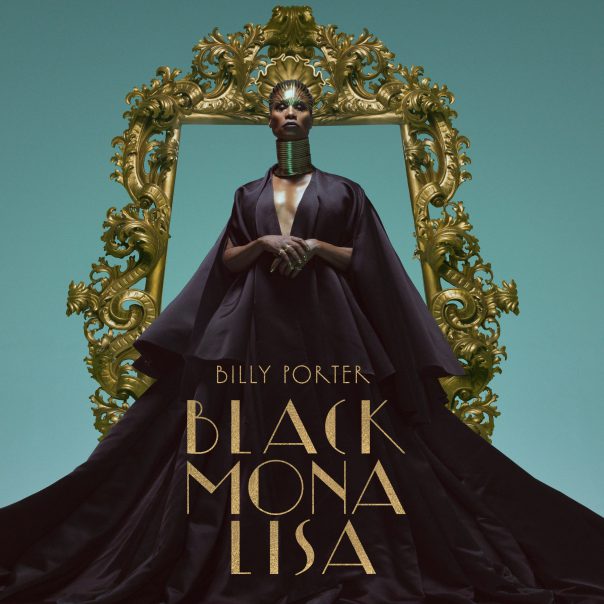ALBUM REVIEW: Billy Porter paints a portrait of ‘Black Mona Lisa’

Billy Porter, “Black Mona Lisa.”
On Black Mona Lisa, multitalented singer Billy Porter proves that he can do just about anything. The EGOT-adjacent artist (he;’s got a Grammy, Tony and Emmy) leans into pop hit-making on these dozen tracks. He and producer extraordinaire Justin Tranton combine to make pop fireworks and an unrelenting series of songs that will make listeners dance.
Black Mona Lisa
Billy Porter
Republic, Nov. 17
8/10
Get the album on Amazon Music.
If you come assuming the stage and screen star’s latest would be a bunch of Broadway-influenced ballads, you’d mostly be missing the mark. On Black Mona Lisa, Porter flexes his pop muscles but adds a health dose of funk and soul to paint with the autobiographical storytelling. His fifth album overall, which shares its name with his summer concert tour (his first nationwide headlining trek) is one of a kind, telling his story in his own words rather than portraying one of his larger-than-life stage characters.
Flashy retro opener “Broke A Sweat” is lush with horns and percussion.
“Clipped wings can grow back with good intentions/ I’m tired of asking for their permission,” Porter declares.
Dua Lipa is a reference point for “Children,” a single Porter originally released in 2021 From the symphonic flourishes to the double handclaps, it’s impossible not to hear echos of “Levitating.” Still, the track stands on its own, with a deep funk groove that recalls Nile Rodgers with an instant club-ready dance floor personality. The back and forth between Porter and the backing singers adds an extra layer of musicality. The track is redone later on with soul phenom Lady Blackbird.
The brassy, rhythm-forward title track hits hard and demands attention. Porter’s expressive vocals evoke James Brown. The tempo then slows on “Stranger Things,” a vocal showcase for Porter’s breathless, blues-soaked enunciation. Picture him in the vocal booth, giving every ounce of energy.
“I’m gonna make the world see and be more than a memory/ Because stranger things have happened to me,” Porter sings.
Likeswise, “Funk Is On the One” oozes funk with a heavy beat and Porter’s expressive singing leading the way. “I’m Not Ashamed Anymore” is an empowering number that takes a smoother tact from some of the bombastic predecessors. The song recalls classic Gloria Gaynor tunes. The singing leaves more room for nuance, occasionally reaching into an upper register to hit the high notes.
After the synth-heavy “Fashion,” on which Billy Porter offers delicate and expressive vocals, the tempo kicks right back up on club-ready “Baby Was a Dancer.” At just over two and a half minutes, the bass-heavy track cooks along wasting little time building momentum. The song brings a celebratory feeling and an urgent jump that makes it immediately attention-grabbing.
On dramatic mid-tempo ballad “More to Learn,” Porter’s singing is on another level. The combination of Porter and Trantor excels in delivering pristine pop with a background of soul and R&B.
“Mama has got some new shoes, but I keep it old school!” Porter shouts on the bouncy “New Shoes.”
Black Mona Lisa taps into a range of emotions. From somber and introspective on the piano-led “Audacity” to the celebratory “New Shoes,” the album never hovers in place for too long or idles in neutral.
The former is one of the few moments on the record where you can feel the influence of Porter’s theater background. “When I was a kid/ Silence was my self-defense/ Fear was my default/ Anger was my first call,” Porter sings before ending on a more positive note. His past isn’t his present.
The redemptive track is a fine bookend to an album that not only sums up Porter’s individuality but stakes his claim in this newer direction.
Follow writer Mike DeWald at Twitter.com/mike_dewald.
